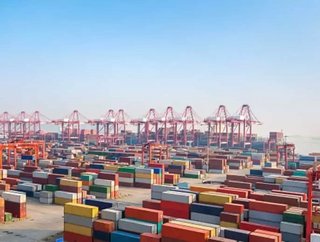Abu Dhabi to become first Gulf port to host world's largest vessels

Abu Dhabi Ports is to become the first port in the Gulf to handle some of the world’s largest bulk cargo vessels.
It has been made possible as a result of Emirates Global Aluminium (EGA), the largest industrial company outside oil and gas, signing long-term port facility agreement with Abu Dhabi Ports to import raw materials through Khalifa Port.
With this agreement, Abu Dhabi Ports will be able to develop the port to become the first in the Gulf capable of directly handling these massive ships.
Abu Dhabi Ports will fund and complete dredging and widening works to the Khalifa Port approach channel and basin including EGA’s berth.
The dredging will deepen the channel to 18.5 metres and basin to 18.0 metres basis zero tide.
EGA plans to use large dry bulk ships to import raw materials without the need to transfer all or some of the cargo to smaller vessels outside the port, reducing long-term shipping costs and improving environmental performance.
The agreement was signed at EGA’s headquarters in Al Taweelah (KIZAD) by Captain Mohamed Juma Al Shamisi, Chief Executive Officer of Abu Dhabi Ports and Abdulla Kalban, Managing Director and Chief Executive Officer of EGA.
Captain Al Shamisi said: “Today’s announcement marks another milestone for Abu Dhabi’s maritime and trade industry, and demonstrates our commitment to ongoing innovation and expansion in response to market and customer demands.
“As vital trade, logistics and industrial hubs of Abu Dhabi, Khalifa Port and KIZAD play a vital role in the Emirate’s economic diversification strategy.
SEE ALSO:
-
Expansion and investment to drive rapid growth in UAE logistics sector
-
Etihad Airways and Pakistan International Airlines announce new codeshare agreement
“Khalifa Port will be the first port in the region with capsize vessel handling capacity, and with EGA’s long term commitment, will give an important boost to trade and investment in KIZAD and more broadly in the region.”
The development at Khalifa Port is expected to lead to larger ships calling in to Abu Dhabi, creating new trade opportunities, supporting local industries and boosting the Emirate’s position as a global maritime trade hub.
EGA will use Capsize vessels to ship bauxite ore, the feedstock for alumina refineries, from the Republic of Guinea in West Africa.
Currently, EGA is constructing UAE’s first alumina refinery next to its aluminium smelter in Khalifa Industrial Zone Abu Dhabi, located adjacent to Khalifa Port, ensuring streamlined logistics. Upon achieving full-production, the Al Taweelah alumina refinery will process five million tonnes of bauxite per annum.
Bauxite ore from Guinea will be transported to Abu Dhabi via the global shipping firm K-Line. Earlier this year Mr. Kalban attended the naming ceremony for one of the vessels K-Line will use for this service. The vessel was named Cape Taweelah.
Capesize vessels are amongst the largest dry bulk cargo ships. They are named Capesize because they are too large to transit the Suez and Panama Canals and must round the southernmost point of mainland Africa (Cape Aughulus) to transit between the Atlantic and Indian Oceans and the southernmost point of mainland South America (Cape Horn) to transit between the Atlantic and Pacific Oceans.
- Logistics round-up: Maersk severs Russia ties, XPO rejigLogistics
- University of Kent helps Dover Port reduce congestion, cut costs and improve efficiencyDigital Supply Chain
- DP World and Indonesian sign deal to develop port and trade infrastructureLogistics
- Briggs Equipment promotes port centric solutions at Multimodal 2016Digital Supply Chain






